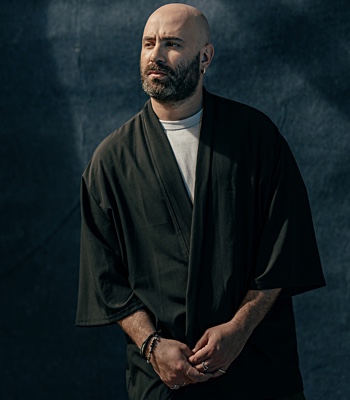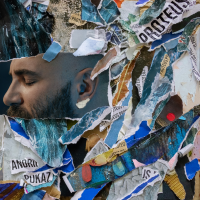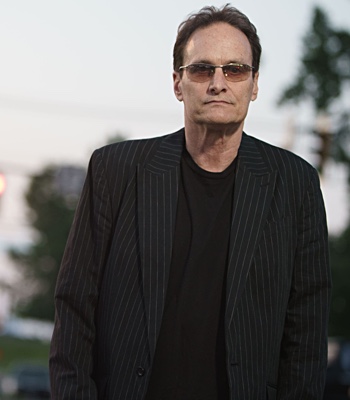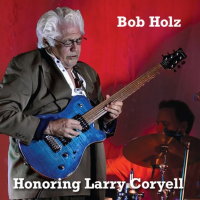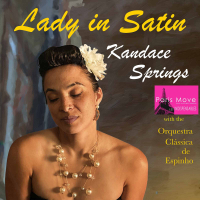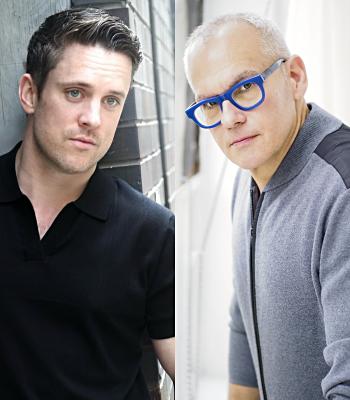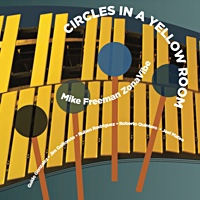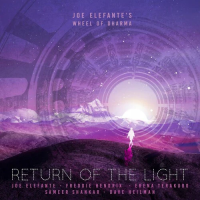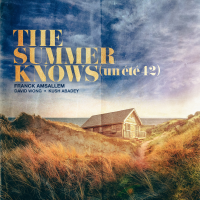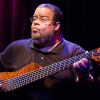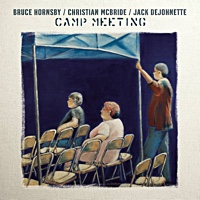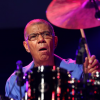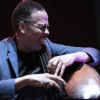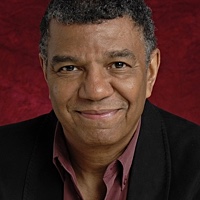Home » Search Center » Results: Cryptogramophone
Results for "Cryptogramophone"
The Bennie Maupin Ensemble: Penumbra

by John Kelman
Bennie Maupin, whose bass clarinet work helped define Miles Davis' classic Bitches Brew (Columbia, 1969), was an equally key contributor to Herbie Hancock's 1970s Mwandishi and Headhunters groups. In light of this, it's hard to believe that he has released only six albums as a leader during his lengthy career. One bona fide classic, The Jewel ...
The Jeff Gauthier Goatette: One and the Same

by John Kelman
Despite its considerably smaller output, the Los Angeles-based Cryptogramophone label could well be considered the American companion to ECM Records' distinctive aesthetic. Attention to sound quality and packaging has been integral to the label's approximately thirty releases, which have ranged from graceful elegance to outré experimentation, comprising a discography that's as worthy of brand loyalty as ...
The Bennie Maupin Ensemble: Penumbra

by Chris May
Always the bridesmaid, rarely the bride, Bennie Maupin has spent most of his career supporting other artists--sometimes as a featured soloist, but more often as a background colourist. Since the mid-1990s he has stood in the shadows more than ever, concentrating on teaching and leading community outreach projects. Penumbra is his first album in eight years. ...
The Jeff Gauthier Goatette: One And The Same

by Troy Collins
One And The Same is violinist Jeff Gauthier's fourth recording with his Goatette quintet and his second on the Cryptogramophone label, of which he is also founder and producer. But Gauthier's group is no mere vanity project. His roots in West Coast improvisation reach back two and a half decades, most notably to the co-founding of ...
Erik Friedlander: Prowl
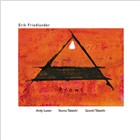
by Jerry D'Souza
The seeds for Topaz were sown in 1996 when Erik Friedlander was scoring the dances for his wife, Lynn Shapiro's New York show, which he later performed with Andy Laster and Stomu Takeishi. There was enough empathy between them to inspire Friedlander to write some new tunes. But there was something missing: they needed more rhythmic ...
Ben Goldberg Quintet: The Door, The Hat, The Chair, The Fact

by Jerry D'Souza
Ben Goldberg returns after a seven-year absence from recording with one for Steve Lacy. Goldberg wrote the music in 2004 when he came to know that the soprano saxophonist had cancer. The album was recorded three days after Lacy died. Lacy's “Blinks is in a state of constant flux. Goldberg's clarinet breaks up the lines, but ...
Erik Friedlander: Prowl

by Sean Patrick Fitzell
One of the most highly regarded cellists in today's creative improvised music scene, Erik Friedlander has been integral to projects led by saxophonist John Zorn, pianist Sylvie Courvoisier and a host of others. But his prolific yield as a sideman has at times overshadowed his own work. Prowl, a testament to Friedlander's talents as a composer ...
Ben Goldberg Quintet: The Door, The Hat, The Chair, The Fact

by John Kelman
He's been active for fifteen years, but unless you know the New Klezmer Trio or have followed the Bay Area scene, chances are you haven't heard of clarinetist Ben Goldberg. Despite appearing on records by Charlie Hunter, Tin Hat Trio and John Zorn, in addition to half a dozen albums released under his own name, he's ...
Erik Friedlander: Prowl

by John Kelman
While cellist Erik Friedlander's last release with his Topaz quartet, Quake (Cryptogramophone, 2003), was a more cosmopolitan affair, Prowl is more localized. Emphasizing African rhythms, largely from percussionist Satoshi Takeishi's unusual hybrid of traditional drums and assorted percussion esoterica, this may be Topaz's most focused release to date. That's not to say there isn't plenty of ...
Erik Friedlander: Prowl

by Troy Collins
With its African-inspired cover art and concentration on indigenous polyrhythms, Prowl presents cellist Erik Friedlander's Topaz quartet taking a virtual trip to the dark continent for a set of rhythmic excursions that are as adventurous as they are accessible. While the ensemble's Middle Eastern modality is still firmly in place, the group has opened itself up ...

